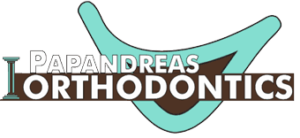Why Teenage Patients Have More TMJ Problems in the Springtime
The temporomandibular joint is a hinge that makes it possible to move your jaws up, down, and sideways. It connects the jaws with the bone of the skull. Every year in spring, doctors experience a surge in the cases of temporomandibular joint (TMJ) disorders, particularly from teenagers. This condition has many causes, one of which is arthritis. However, for students, the disorder results from the stress experienced in this season.
How Does Stress Cause TMJ Problems
When people are stressed, they are more likely to clench and grind their teeth. Usually, this is done subconsciously, even when they are asleep. Clenching and grinding of teeth put a lot of pressure on the joints and facial muscles. Clenching your jaws can eventually cause the misalignment of their joints, and this can lead to pain and a lot of discomfort.
Teenagers who show signs of TMJ problems don’t always have a serious condition. Many times, they simply have a problem with the muscles located behind the molars, meaning the actual joints do not degenerate at all. The TMJ joint is located in front of the ears, so if they experience pain in the molars, the problem is connected to the muscles.
What Are the Symptoms of the Condition?
If your children show these symptoms, they are likely to be suffering from TMJ disorder:
- Pain in the jaw joint, neck, face, shoulders, and ears. The teenager will experience the pain when they speak or attempt to open their mouths.
- Locking of the jaws, either when open or closed
- Exhaustion of the facial muscles
- Misalignment of the jaws, meaning the top and bottom teeth may not fit into each other perfectly
The teenager might also make some clicking or grating sounds when they open or shut their mouths. This is not necessarily painful. The face may also swell. Toothaches, headaches, mild tinnitus, and pain in the shoulders are also common in such patients.
If your children show these symptoms, you should take them to an orthodontist for examination and treatment.
How Can You Prevent TMJ Disorders in Spring?
The first step in controlling the problem is finding out its exact cause. You should identify the causes of stress in your teenage child. Students in this age range are usually anxious about exams, prom, and securing jobs for summer. Older teenagers are stressed out by the fact that they will soon leave home for college. Once you identify the exact cause of stress in your teenage child, you should offer parental support to reduce their anxiety.
The child should also be aware that they are clenching their jaws. This usually happens subconsciously. Once they notice it, they are more likely to reduce the clenching and grinding of jaws. Keeping the teeth separated most of the time can help to prevent them from clenching and grinding. They can also learn to keep the tongue between the teeth often. If the child clenches the jaws while asleep, you can get dental mouth guards to prevent this from happening.
A good posture can also help to prevent the problem. You should make sure your child never holds the phone between the shoulder and ear as this can affect the jaws.
How is TMJ Problem Managed?
It is important to go for a professional examination since the problem may not exactly be linked to the jaw. Also, the problem may not be caused by stress, meaning the management of the disorder will have to be done differently. In many cases, TMJ disorders that result from stress are not treated with braces or Invisalign.
Certain forms of physical therapy can be used to help with the problem. A simple exercise would be to contract the muscles. They should do a minimum of 3 sets of 10 reps in order to relax the sore muscles of the jaw. Alternatively, they can make a fist and rest their elbows on their knees. Then, they should rest the chin on the fist and apply pressure on the jaws. This should be done with the mouth open.
The problem can be managed with some painkillers such as Advil. You can also apply a hot pack to the jaw area in order to relieve the pain. Another alternative is to gently massage the affected area in order to relax the facial muscles. Relaxation techniques such as Yoga can also help to calm the nerves and relieve stress.
Unfortunately, people who experience TMJ rarely get rid of the problem completely. It might subside once they relax, but will recur in case of adversity. Managing stress is the best way to control TMJ disorders.
If the problem persists after spring, you should visit an orthodontist for treatment. The orthodontist may suggest options such as transcutaneous electrical nerve stimulation, ultrasound, trigger-point injections, radio wave therapy, and low-level laser therapy. If the case is beyond these treatment options, you can also opt for surgery. The types of surgery done for TMJ disorder are arthrocentesis, arthroscopy, and open-joint surgery.
Conclusion
Spring is a stressful period for teenagers. They have to deal with exams, prom, and other events in their lives. This stress usually makes them clench and grind their jaws, and this leads to problems with the TMJ joint. It is important to talk to your child in order to find out the cause of their stress. If the problem gets serious, you should take them to an orthodontist for examination and treatment.
Schedule Your Appointment Today
Dr. Samuel Papandreas provides expert orthodontic care for adults, teenagers and children at his facilities in:
• Brunswick, Ohio
• North Royalton, Ohio
His patients are fitted with customized orthodontic devices that include:
• Braces – color-matching ceramic or metal devices
• Retainers – worn at night when your braces are removed
• Invisalign aligners – clear plastic devices
• Palatal expanders – worn before your orthodontic treatment begins
You can schedule an appointment with Papandreas Orthodontics to learn about the best type of orthodontic treatment for you and your children to improve your smile correct your dental bite.
Papandreas Orthodontics
3511 Center Road, Suite B
Brunswick, OH 44212
tel: 330-558-9092
***
14200 Ridge Rd
North Royalton, OH 44133
tel: 440-582-8585

